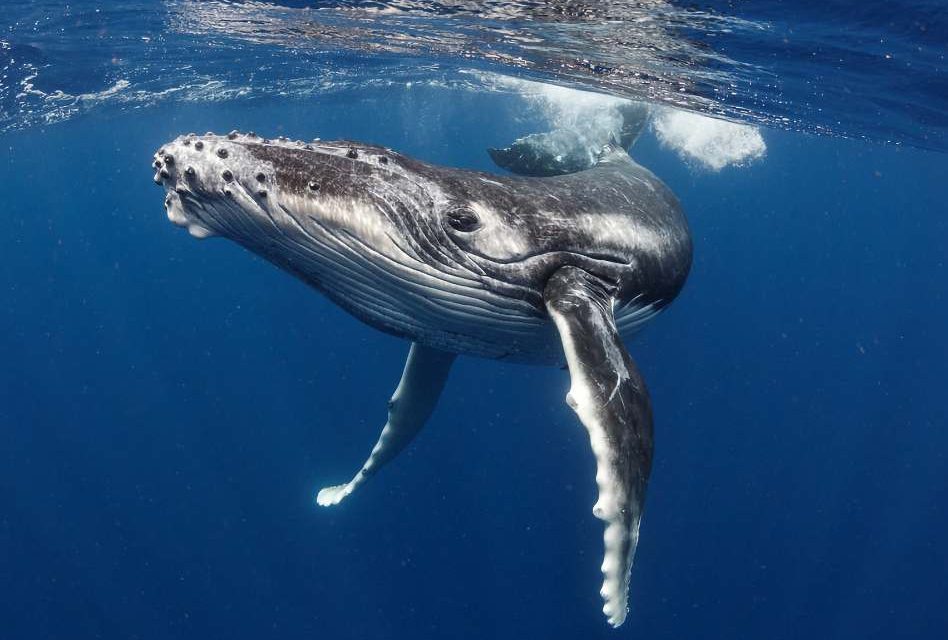If you plan to boat or fish in the Atlantic Ocean this winter, be on the lookout for North Atlantic right whales that are calving in state and federal waters off Florida, Georgia and South Carolina from November through April. This endangered species is extremely hard to spot and collisions with vessels put passengers and crew at risk and could cause injury or death to right whales. With approximately 360 individuals remaining, right whales are one of the world’s most endangered large whale species.
The first right whale mother-calf pair of the season was spotted on Nov. 28 off South Carolina. Several more adult females have been sighted from North Carolina to Georgia since Nov. 15, all potential mothers this winter. Aerial survey efforts will increase off Florida and Georgia heading into December.
Follow these boating safety tips during right whale season:
- Go slow, which can give you time to react.
- Post a lookout! Watch for black objects, unusual or persistent whitewater, and splashes.
- Avoid boating in the dark, when visibility is poor or in rough seas.
- Use org or the Whale Alert app to monitor the seasonal presence of right whales in your area.
- Check for signage at your local boat ramp or marina as a reminder of what to look for and how to identify and report right whale sightings.
- If a whale is spotted, slow down, operate at a slow speed or put your engine in neutral if possible. Assess the scene and slowly leave the area while keeping watch. Never pursue or follow a whale. Keep at least 500 yards from right whales (it’s the law).
- Report whale sightings and collisions immediately to the U.S. Coast Guard on marine VHF Ch. 16 or call 1-877-WHALE-HELP (942-5343).
Learn more about what you can do to prevent right whale collisions at MyFWC.com/Research by clicking “Wildlife” then “Mammals” and select “North Atlantic Right Whales.”
Source: FWC, https://myfwc.com


















